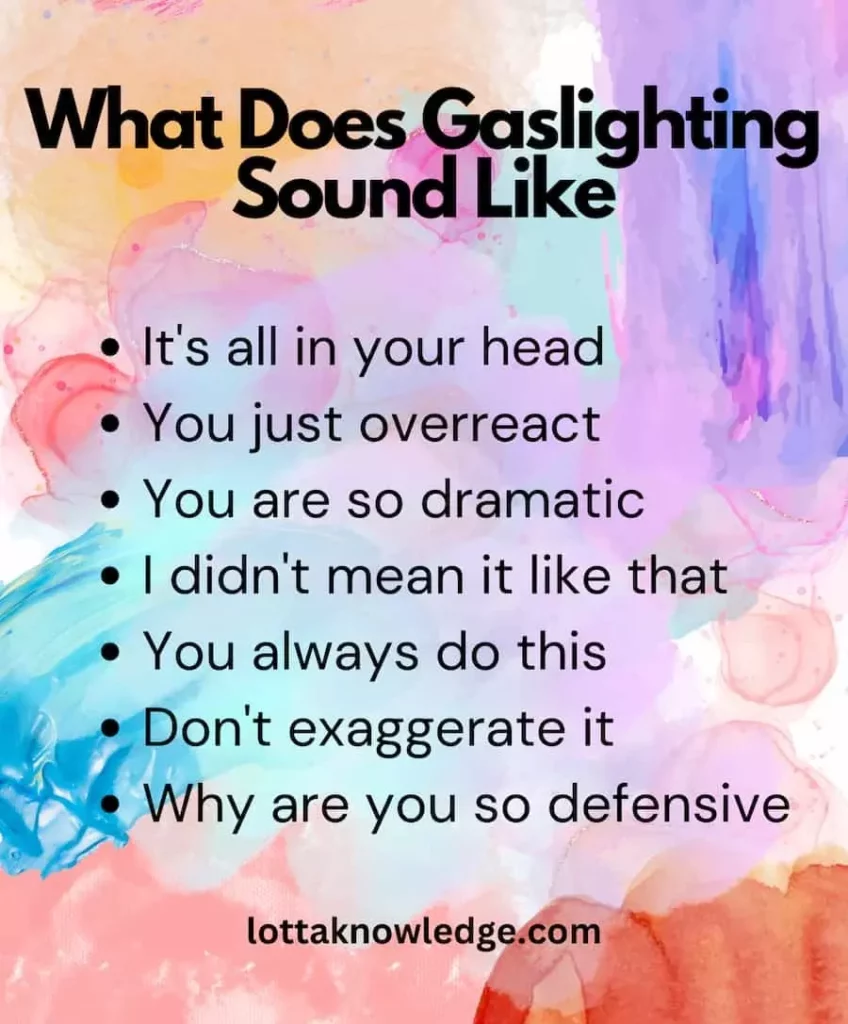Gaslighting Meaning, Definition, and Examples
Gaslighting may seem to be a new-age term adopted by Generation Z, yet this deceptive method has been around for a long time. Here, the manipulator tries to alter the sense of reality to obtain power and influence over the victim.
Gaslighting meaning may vary from situation to situation type of psychological abuse makes the victim doubt their memory, judgment, and mental clarity.
Gaslighting is common in relationships, businesses, and other situations, causing the victim to experience uncertainty, self-doubt, and emotional suffering.
Recognizing gaslighting behavior is critical for safeguarding one’s mental health and establishing proper boundaries.
Read further to find out the actual meaning of gaslighting, gaslighting examples, and why people gaslight.
Gaslighting Meaning in Simple Words
Gaslighting simply means playing mind games and making the victim question their feelings. This way the manipulator takes control of the victim and makes them a puppet. The victim starts to feel frustrated, exhausted, and confused this way.
Initially, the victim may fight against such behavior, but with time, the victim accepts it as though it is their fault for feeling such emotions. The manipulator wants you to believe their side of the story even if it isn’t true.
Gaslighting Examples
Gaslighting occurs in different spheres of life. These people might be close to you and want to gain something out of this manipulation. The meaning of gaslighting abuse varies depending on who does it.
Gaslighting Meaning in Friendship
Gaslighting may occur in a friendship when a friend manipulates and undermines your feelings. They may ignore your emotions, and tell you that you are overreacting.
For example, if you express worry about a painful behavior, the toxic friend may try to persuade you that it didn’t happen that way or that you misinterpreted the circumstance.
They either might be a fake friend or don’t want you to do something that’ll make them lose you.
Gaslighting Meaning with Parents
Gaslighting by parents may be very difficult for a youngster, but also for an adult child. It might entail your parent underestimating your achievements, rejecting your feelings, or continually criticizing you.
They may deny previous occurrences or experiences, causing you to doubt your memories of your childhood. Constant comparison is one of the biggest examples.
This might come from a place of insecurity where your parents feel that they didn’t raise you well enough.
Gaslighting Meaning in Relationships
Gaslighting is emotionally destructive in an intimate relationship. Your partner may dismiss your ideas, trick you into believing you’re forgetful or illogical, or accuse you of making things up.
They may even blame you for their abusive behavior or make you feel guilty for the relationship’s difficulties. A partner’s manipulation can certainly cause self-doubt, isolation, and a lowered feeling of self-worth.
This might be a sign of cheating, however, it could be a sign of unresolved childhood trauma of your partner.
Gaslighting Meaning with Co-workers
In the workplace, gaslighting occurs when a coworker takes credit for your efforts, spread false rumors about you, or alters the facts to portray you as untrustworthy.
The coworker who is gaslighting you may also try to make you doubt your abilities or understanding of your industry, leading to professional unease and stress.
This co-worker feels competitive in a very negative way and you should avoid working with them.
What Does Gaslighting Sound Like
Gaslighting Phrases might seem normal until you listen to them clearly. Not taking accountability during arguments is a big sign of gaslighting, so be aware of the following phrases.

Why Do People Gaslight?
People might gaslight for several reasons but mainly to take control of a person’s emotions to use it for their benefit. The gaslighter is always meant to manipulate you because it isn’t done unintentionally. Here are some common reasons behind gaslighting:
1. Ego and Superiority:
Some people gaslight others to boost their ego and make themselves feel superior by making the victim doubt themselves and rely on the gaslighter for advice.
2. Avoiding Accountability:
Manipulation may be used by gaslighters to avoid taking responsibility for their acts or to shift blame onto the victim.
3. Insecurity or Jealousy:
Gaslighters may feel insecure or suspicious of the victim’s strengths, accomplishments, or connections in some situations, prompting them to destroy their confidence and self-esteem.
Also Read:
Conclusion
In summary, gaslighting is a deceptive technique used to blur a person’s perception of reality, causing them to doubt their memory and judgment.
As a result, it can result in mental distress, self-doubt, and confusion. Gaslighting may happen in various contexts, including friendships and personal connections, as well as at work.
Recognizing this behavior is critical for maintaining mental health. Gaslighting is not a new concept; it has long affected relationships and friendships.
FAQs
This manipulative tactic is to take someone under control. The manipulator lies and changes event details which makes the victim doubt their memory and senses.
Anyone whom you are related to can gaslight you, be it your friends, family, partner, and colleague
Although it is done for selfish reasons and to gain control over the person, sometimes gaslighting can also be used as an ego booster by some people to make them feel superior to others.


